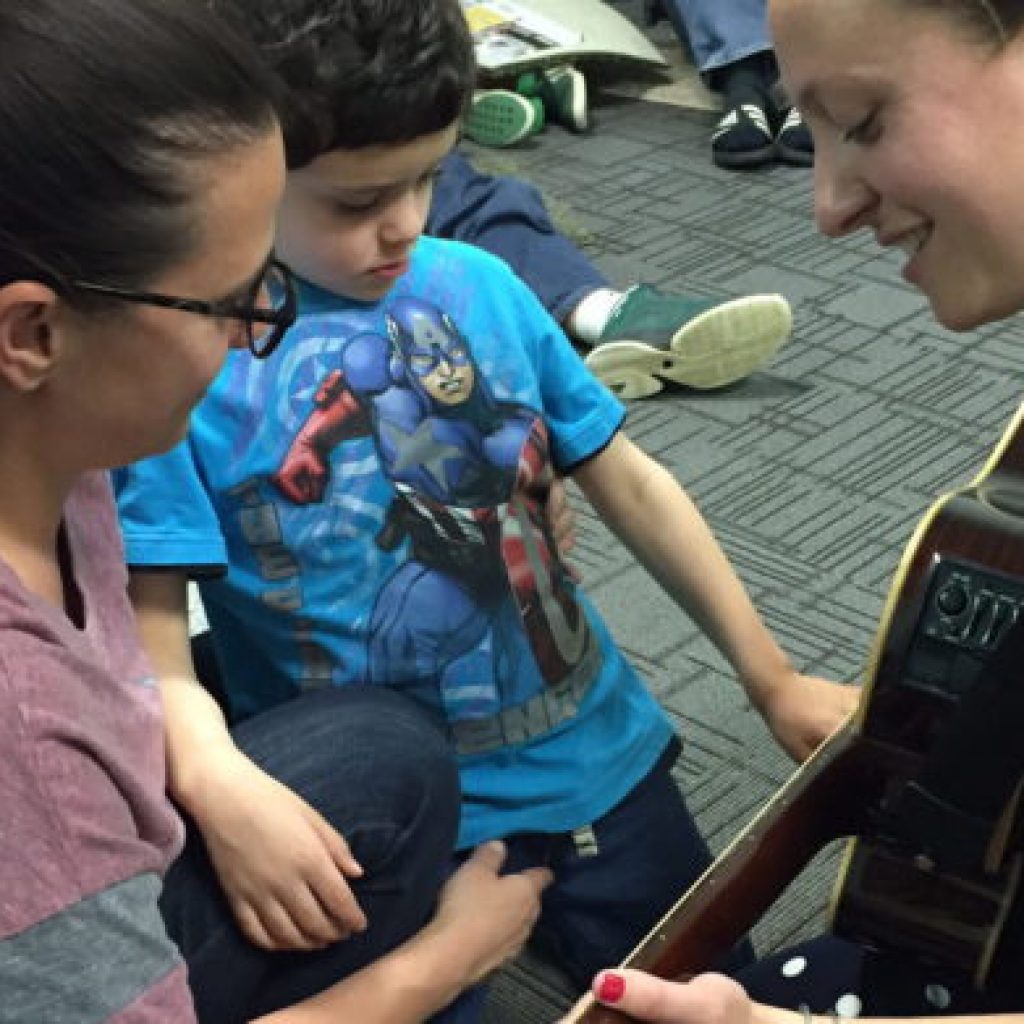What is Music Therapy?

Music therapy is an interpersonal process in which the therapist uses music and all of its facets physical, emotional, mental, social, cultural, aesthetic and spiritual to help people improve or maintain their health. In our music therapy classes, we create music together in a safe and motivating environment. Through this process, strengths that may otherwise go unseen are revealed and music therapists help clients understand these strengths. Music is used to connect with clients, reveal possibilities and make their lives better.
MUSIC THERAPY FOR PEOPLE WITH SPECIAL NEEDS
Music is inherently structured and it provides ample opportunities for open-ended, independent, interactive, creative, and successful participation. Because of this, music therapy is used to help individuals of all ages with special needs to work on communication skills, fine and gross motor coordination, sensory processing, cognitive/academic skills, self-help skills, social skills and emotional wellbeing.
Each individual is assessed by the music therapist to determine specific areas of need and goals and objectives. Musical experiences (i.e. learning songs, songwriting, instrument playing, creative movement, etc.) are then designed to specifically address each of these areas of need with a focus on the musical styles, songs and experiences that they prefer. No previous musical training or skill is necessary to participate in music therapy. The client is always central to the music, experiences and pacing of the sessions.



